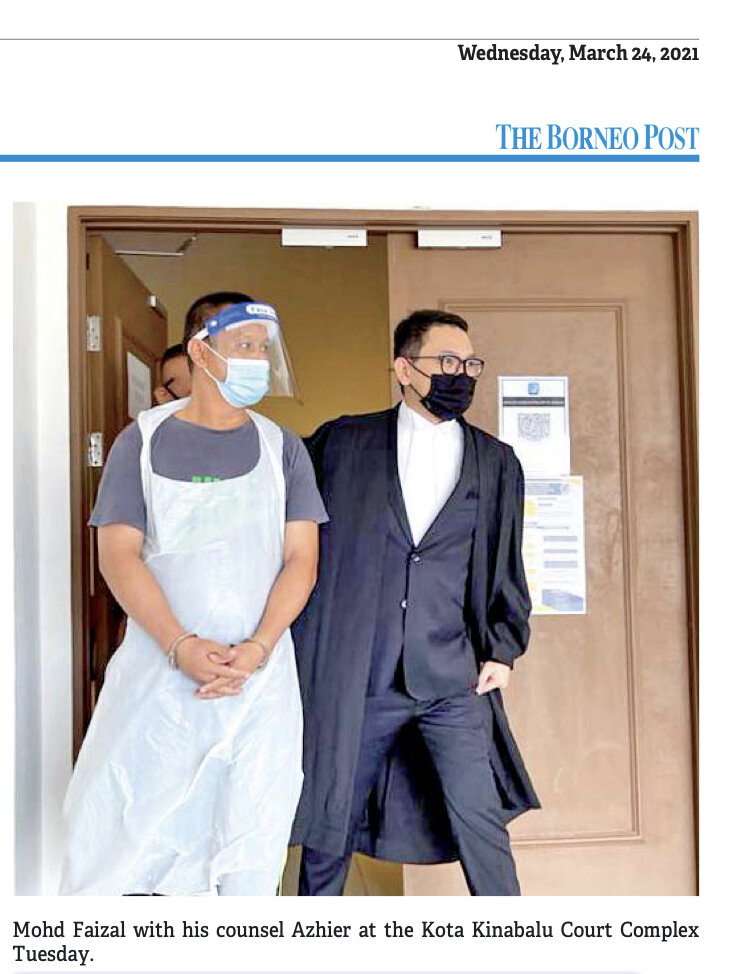
At Azhier Arisin & Jaafar, we offer straightforward, honest, legal advice. Our aim is to help you understand and evaluate the best options available, so that you can make the right decisions. Our ultimate goal is to bring effective resolutions to your disputes efficiently and effectively.
Our experienced team offers excellent representation in different areas of law, including criminal defence, civil litigation, and corporate matters. Our slogan, "Advocating Fearlessly" is the essence of our ethos. Each word we utter, every strategy we devise, resonates with the vibration of fearless advocacy, aimed at anchoring justice and truth.
WHY US?
01. COST-SAVING FEE STRUCTURE
We understand the importance of accessible legal services. Our fee structure is designed to be both reasonable and cost-effective, ensuring quality representation without financial strain.
02. EXCLUSIVE PRACTICE IN SABAH AND LABUAN
Our practice is exclusively focused in the state of Sabah and the Federal Territory of Labuan. With in-depth knowledge of local laws and regulations, we offer specialized expertise that lawyers from other jurisdictions, such as West Malaysia, cannot provide.
03. LIMITED ENGAGEMENT
To maintain the highest standards of service, we accept a limited number of cases each year. This allows us to dedicate our time, attention, and resources to each case, ensuring thorough and personalized legal support.
04. SKILLED LEGAL TEAM
We provide honest and straightforward legal advice, ensuring clarity and transparency at every step. Our team of experienced and skilled lawyers is dedicated to offering practical and effective solutions, approaching each case with meticulous attention, unwavering commitment, and strategic expertise.
TRUSTED BY LEADING CORPORATIONS
ABOUT THE LEGAL FEE
How much do you charge for legal fee?
Our legal fees vary depending on the circumstances and complexity of each case. For most civil matters, we offer two fee structures:
- Fixed Fees – A predetermined amount based on the scope of work.
- Contingency Fees – A percentage of the contentious amount involved, applicable in specific cases.
For criminal matters, our fees are charged exclusively on a fixed-fee basis.
In non-contentious matters, such as the preparation of Sale and Purchase Agreements, Tenancy Agreements, and similar documents, legal fees are strictly regulated under the Advocates Remuneration Rules 1988. As such, we are legally prohibited from charging above or below the prescribed rates.
Additionally, due to legal restrictions in Sabah, law firms are not permitted to disclose their fee structures or methods of charging on their websites. For a detailed quotation or further inquiries about our legal fees, please contact us directly. We would be happy to assist.
How much do you charge for drafting Sale and Purchase Agreement?
In respect of drafting Sale and Purchase Agreements, the legal fee has been fixed and prescribed by the Advocates Remuneration Rules 1988. You may refer to the schedule of fees on the Sabah State's Attorney General's webpage.
Can I get a discount on my legal fee?
Under Rule 7 of the Advocates Remuneration Rules 1988, advocates are prohibited from offering discounts or receiving any consideration outside the prescribed remuneration outlined in the Rules. However, there are specific exceptions where discounts may be granted, which include:
- Charity/Religious bodies
- Employees of the law firm
- Immediate family members of the advocate
- Fellow advocates
If you believe you fall within these exceptions or have any inquiries about your legal fees, please feel free to reach out to us for clarification.
Does the Legal Fee Include Disbursements and Filing Fees?
No, our legal fee does not include disbursements. Disbursements are out-of-pocket expenses incurred on your behalf and may include:
- Court e-filing fees
- Postage charges
- Telephone charges
- Photocopying expenses
- Court filing fees
- Travel expenses such as airfare and hotel accommodation for matters requiring travel outside Kota Kinabalu
A detailed breakdown of disbursements will be provided in each invoice for your reference. If you have any questions regarding these charges, feel free to contact us.
Can you start work on my case without payment of deposit?
For criminal cases, we require either full payment of the legal fee or a deposit of at least 50% of the total legal fee before we commence work on your case.
For civil cases, we typically include a Schedule of Payments in our Letter of Engagement. Payments are structured based on the progress of the work, as outlined in the Schedule.
If you have specific concerns about payment terms, please feel free to discuss them with us directly.
Why Are Lawyer’s Fees So Expensive?
This is a common misconception. A lawyer’s fees are actually quite modest when you consider the extensive work, time, skill, and effort invested in each case. Many clients may not realize that much of a lawyer’s work happens behind the scenes.
Countless hours are spent researching the law, drafting agreements, or analyzing evidence, often in the solitude of a library or office, away from the client’s view. Lawyers meticulously review voluminous legal reports and journals filled with complex legal jargon, which often only they can interpret.
In return for this dedication, lawyers relieve clients of the burdens and complexities of legal matters, providing peace of mind and the confidence that their case is in capable hands. This effort and expertise ensure that clients receive the best possible representation and outcomes.
Do you accept payment via Credit Card?
No, we currently only accept payments in cash or via bank transfer. If you have any specific payment concerns, please feel free to contact us.
ABOUT CRIMINAL Litigation
My family member has been arrested. What should I do?
Stay calm and gather as much information as possible. Determine the grounds for the arrest and take note of the time and place it occurred. Try to collect details about their activities over the past hours or days, as this information could be crucial for building their defense during trial.
You should also contact the Investigating Officer (IO) handling the case to enquire where your family member is being detained.
Appoint a lawyer immediately after the arrest. This ensures a prompt consultation with the arrested person and can help prevent the police from recording any statement that may incriminate them in a criminal offence.
I have been arrested for more than 24 hours. What should I do?
From the moment of your arrest, you have the right to communicate with your lawyer. Inform the police of your intention to exercise this right and insist that no questioning or statement recording proceed until after you have consulted with your appointed lawyer.
The police cannot detain you for more than 24 hours without a remand application being granted by a Magistrate. Ensure your lawyer is contacted to be present during the remand proceedings, where they can submit arguments opposing the remand application to secure your immediate release.
Can I be bailed out during the remand period?
No. You will remain detained until the remand period expires. It is crucial to appoint a criminal lawyer for the remand proceedings to advocate for your release and argue your case before the Magistrate.
My remand has expired. What’s next?
Depending on the Public Prosecutor’s instructions, you may either be released or charged in open court. If a criminal charge is brought against you, it will be read and explained to you in court. At this stage, you have the option to plead guilty or not guilty. Before making your plea, consult with your appointed lawyer to understand your options.
I plead not guilty to the charge. Can I be bailed out?
Your eligibility for bail depends on the type of offence. For bailable offences, you may be released with or without conditions. For non-bailable offences, bail is not permitted.
Can a lawyer stand as my surety?
No. Lawyers are prohibited from acting as surety or bailor for their clients under the Advocates (Practice & Etiquette) Rules 1988.
Can you explain the process of criminal justice?
To learn more about the criminal justice system in Malaysia, please refer to this link.
ABOUT AGREEMENT
What Types of Agreements Do You Draft?
We draft a wide range of agreements, from Memorandums of Understanding to Development Agreements, Sale and Purchase Agreements, and Powers of Attorney. Essentially, we can prepare any agreement tailored to your specific needs, ensuring that it is legally binding for all participating parties.
Can You Handle the Sale and Purchase Agreement for My House?
Certainly, we can assist with your Sale and Purchase Agreement.
I Am Terminally Ill. Can You Help Ensure My Children Inherit My Properties?
First and foremost, we are deeply sorry to hear about your condition. We can assist by drafting a comprehensive Last Will and Testament to ensure your wishes regarding your children’s inheritance are fulfilled. Additionally, we offer services to safely retain custody of your Will. In the event of your passing, our lawyers will read and explain the Will to your beneficiaries and guide them on the next steps to obtain the Grant of Probate.
Please note, the cost of drafting the Last Will and Testament is separate from the services of retaining the Will and applying for the Grant of Probate in the High Court.
My Lawyer from Penang Drafted a Sale and Purchase Agreement for a Property I Bought in Butterworth. I Need to Execute It in Front of a Sabahan Lawyer. Can You Help, and How Much Do You Charge?
Absolutely, we can assist. We provide attestation services for all types of agreements except for loan or security documents. As outlined in the Advocates Remuneration Rules 1988, the charges are as follows:
Witnessing the Execution of a Document:
- RM 50.00 for the first copy.
- RM 5.00 for each subsequent copy.
Witnessing Execution with Attestation Certificate:
- RM 100.00 for the first copy.
- RM 5.00 for each subsequent copy.
If you’d like to proceed, feel free to reach out to schedule an appointment.
ABOUT CONSULTATION
I Am Interested in Appointing You as My Lawyer. Can You Evaluate My Case?
If you are interested in appointing us as your lawyer, you may schedule a consultation for an evaluation of your case. The initial consultation incurs a one-off fee of RM 500.00. During the consultation, we will provide a preliminary opinion on your case, including the pros and cons of pursuing your claim. If we determine that you do not have a viable case, we will ensure you understand why and explore alternative options available to you.
However, not all cases require a consultation. Some matters may be straightforward, and if you already know what legal services you need, you can simply book an appointment, and we will proceed to open a file and work on your case.
Do You Charge a Consultation Fee for Sale and Purchase Agreements or Similar Matters?
No, we do not charge a consultation fee for matters such as Sale and Purchase Agreements or Tenancy Agreements. These transactions are generally straightforward and common. Simply schedule an appointment with us and bring all the relevant documents.
What Happens After the Initial Consultation?
If you decide to proceed, you may instruct us to open a file and prepare a detailed written legal opinion about your case. At this stage, we will advise you of the anticipated legal costs and may require a deposit to secure our services. Alternatively, you are free to consult with other lawyers for a second opinion.
Do You Charge for Consultation Requests via Email?
Due to the high volume of requests we receive daily, we are unable to review cases submitted through email or online. Please contact our office by phone to schedule an appointment.
After the Consultation, I Have Decided to Appoint You as My Lawyer. What’s Next?
We will first require you to sign a Legal Services Agreement to confirm your acceptance of our terms and conditions. Once signed, we will proceed with handling your case.
I Have Been Charged in Court for a Criminal Offence and Need Your Advice.
Please contact us immediately to schedule an appointment. If you are unable to do so, we recommend arranging for your family members to contact us on your behalf. In some cases, we may, at our discretion, waive the consultation fee.

what type of CRIMINAL offences we defend
PERSONS
Murder
including culpable homicide, negligence, reckless driving.
Causing hurt
by dangerous means/weapons/tools.
Rape
including unnatural offences such sodomy & buggery.
Assault
including use of criminal force to outrage modesty.
PROPERTY
Robbery
including gang robbery.
Theft
including theft of a motor vehicle and in dwelling house.
Stolen Property
dishonestly receiving stolen property and assisting in concealment of stolen property.
Cheating
by inducing delivery of property.
BRIBERY
Misappropriation/Breach of trust
dishonestly misappropriates, or converts property to own use.
Abuse of power
Using power or position to grant contract to family members
Bribery
soliciting/receiving gratification in exchange for any act or omission in the performance of his public functions.
DRUGS
Drug Trafficking
S.39B of DDA
Possession of Drugs
S.12 of DDA
Administering drugs into body
S.15(1) of DDA
Offence under Drug Dependant Act
Detention under Agensi Anti Dadah Kebangsaan
Book an Appointment
Booking an appointment has never been easier with our online booking system. You can conveniently select a date and time that suits you and make an instant payment using your credit or debit card or PayPal account.

“Falsus in uno, Falsus in omnibus ”
CRIMINAL LITIGATION PROCESS
STage 1
ARREST & INVESTIGATION
In Malaysia, the criminal justice system categorizes offences into two types: those for which the police may arrest with or without a warrant. In cases of arrests made without a warrant for a seizable offence, the police can proceed with investigating the criminal offence without first obtaining an Order to Investigate (OTI) from the Public Prosecutor. The police are required to complete the investigation within 24 hours, after which the Investigation Paper (IP) must be referred to the Public Prosecutor for further instructions. If the investigation cannot be completed within this timeframe, the police may apply to the court under Section 117 of the Criminal Procedure Code to remand the suspect.
During the arrest, the suspect has the right to inform the police that they wish to be represented by a lawyer before any questioning or statement recording begins. The police are required to delay questioning or recording of any statement until the suspect has consulted with their lawyer.
STAGE 2
REMAND PROCEEDINGS
After the initial 24-hour period following an arrest, the detained individual must be released immediately unless the police apply to the court for an extension of detention to complete their investigations.
For most seizable offences carrying a sentence of less than 14 years' imprisonment, a Magistrate may order a remand of up to 4 days on the first application and up to 3 days on a second application. For offences punishable by death or imprisonment of 14 years or more, the detention may be extended for up to 7 days on both the first and second applications.
At this stage, the suspect has the right to appoint a lawyer to contest the police's remand application. Legal representation should ideally be arranged promptly, preferably as soon as the suspect is arrested and taken to the police station.
STAGE 3
CHARGE AND BAIL
Once the remand period expires, the criminal charge will be read and explained to the accused. If the accused understands the nature and consequences of the charge, they may enter a plea. The accused has the right to be represented by a lawyer during this process. If the accused pleads not guilty, their lawyer may submit a bail application.
A bail application involves the court hearing arguments from the accused's lawyer on whether the accused can be released from custody upon paying a security deposit. This deposit serves as a guarantee for the accused's attendance in court on the specified dates. However, certain offences are non-bailable under the law, in which case the accused will remain in custody until the trial concludes.
If the court approves the bail application, the accused will be released from custody. However, the criminal proceedings will continue. The accused must attend all court mentions, hearings, and trial dates as scheduled. Failure to appear will result in the forfeiture of the security deposit, the issuance of a warrant of arrest, and, if necessary, legal action against the bailor who provided the guarantee.
STAGE 4
PRE-TRIAL CASE MANAGEMENT
After the bail proceedings, the court will set a new date for case management. During this stage, all relevant documents and evidence that the prosecution intends to use at trial will be provided to the defense lawyer.
STAGE 5
TRIAL
The trial commences with the prosecution presenting its case by calling witnesses and submitting evidence to the court. At this stage, the prosecution bears the burden of proving the case beyond a reasonable doubt. If the prosecution fails to establish a prima facie case, the court will discharge and acquit the accused.
STAGE 6
POST-TRIAL
If the accused is found guilty, the court will impose a sentence based on the prescribed punishments. Before sentencing, the defense lawyer will have the opportunity to present a mitigation plea, requesting a lighter sentence. Following sentencing, the lawyer may also request a stay of execution to delay enforcement of the sentence pending an appeal to the appellate court.

News & Updates
FOLLOW US
ON THE NEWS










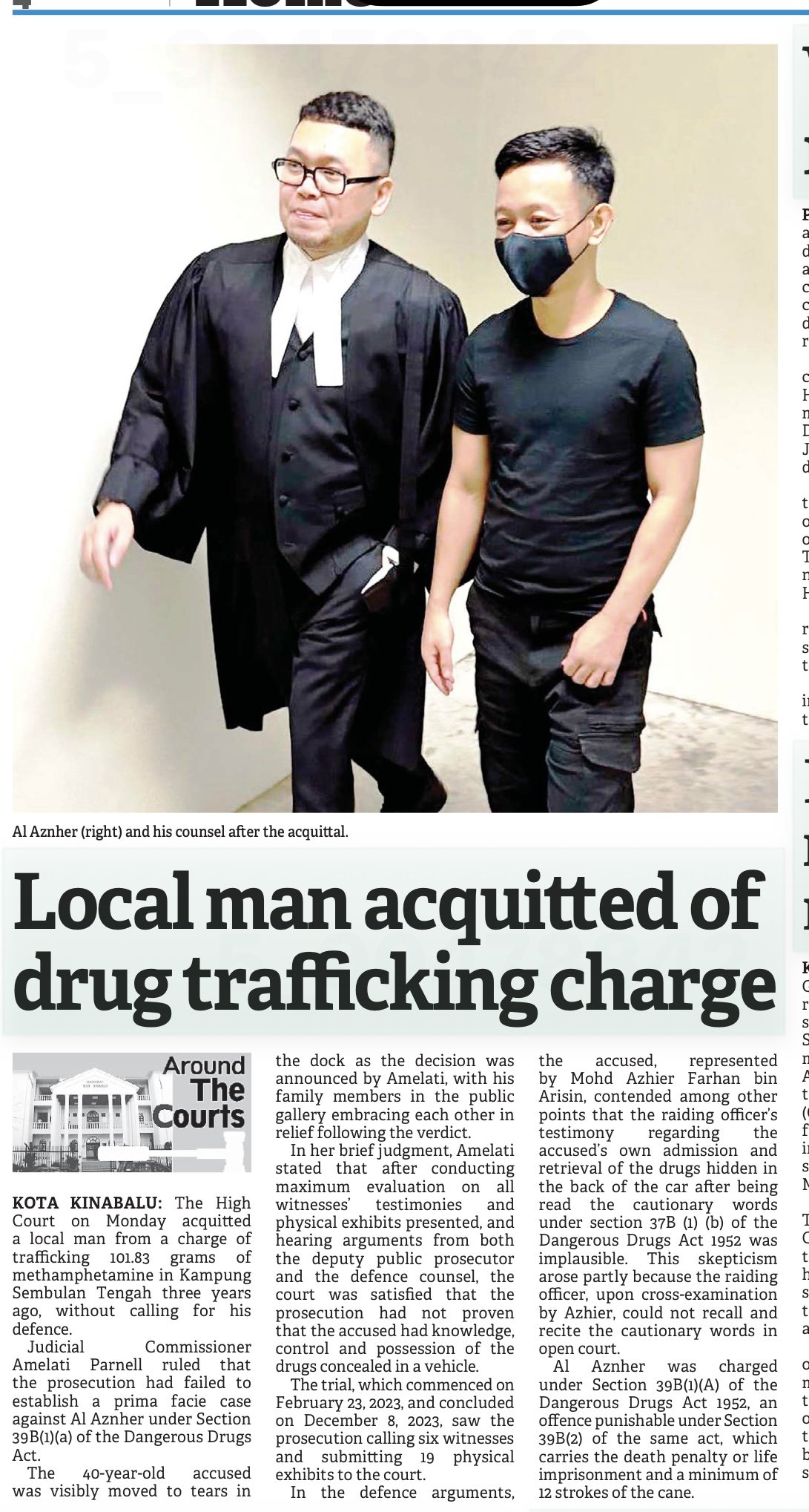

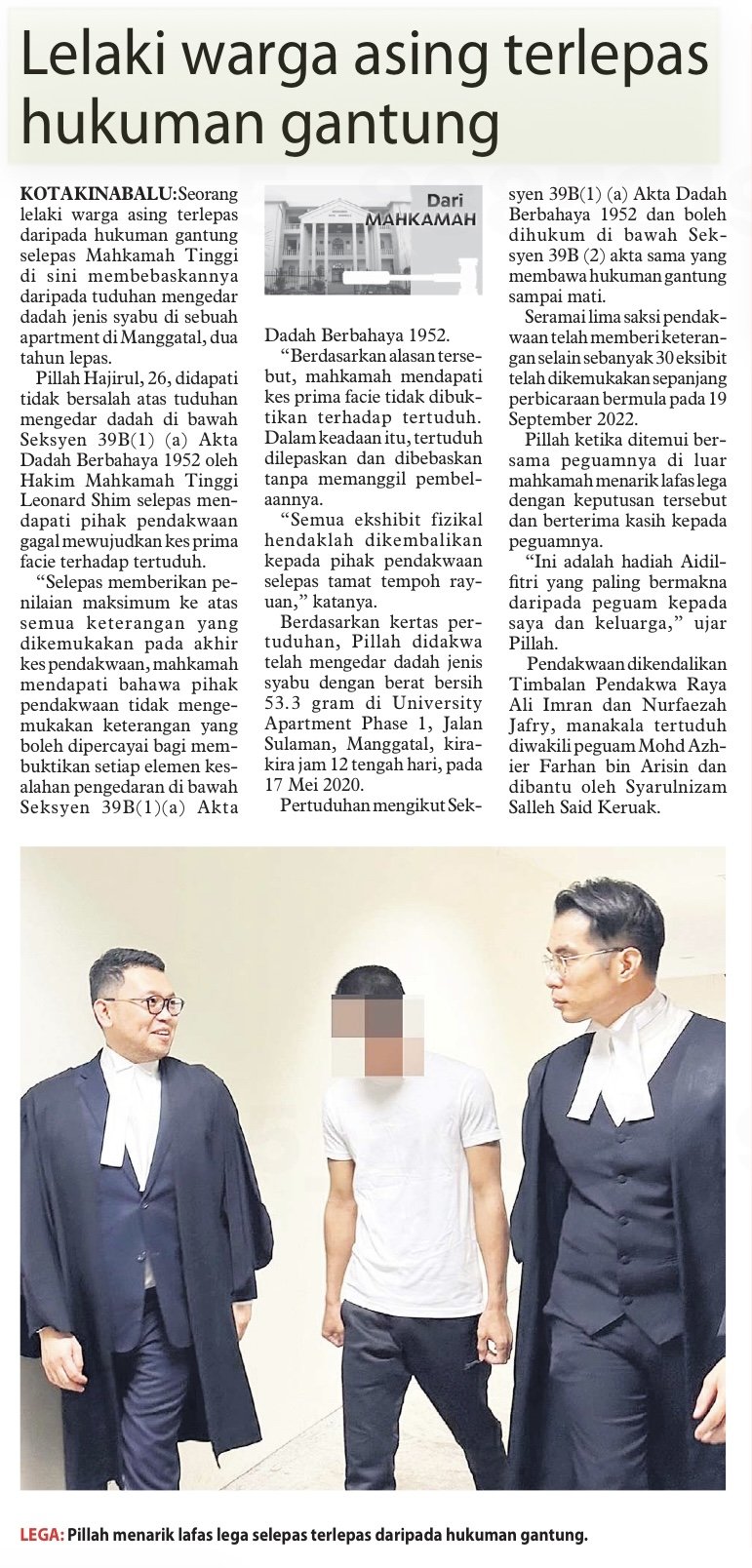
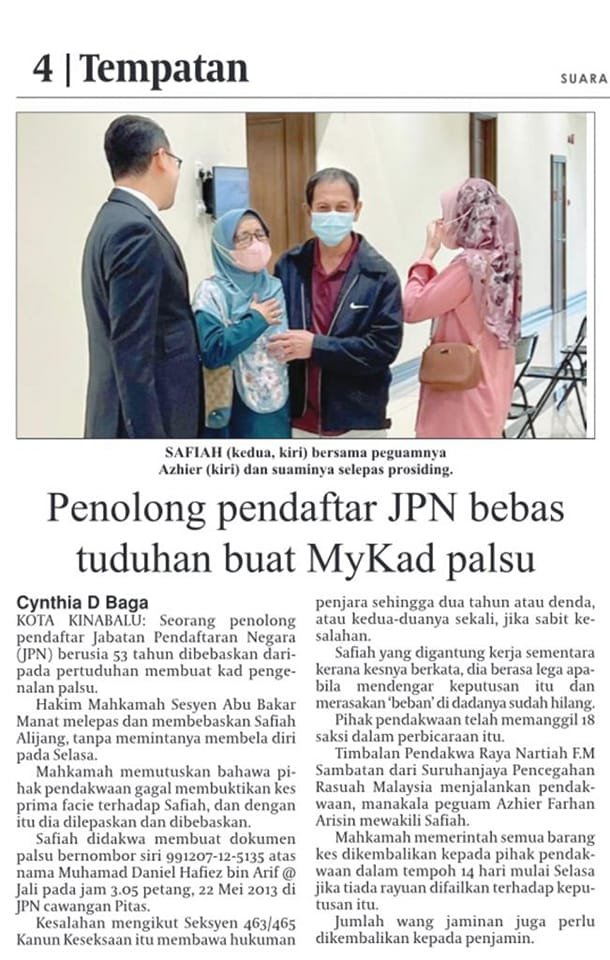



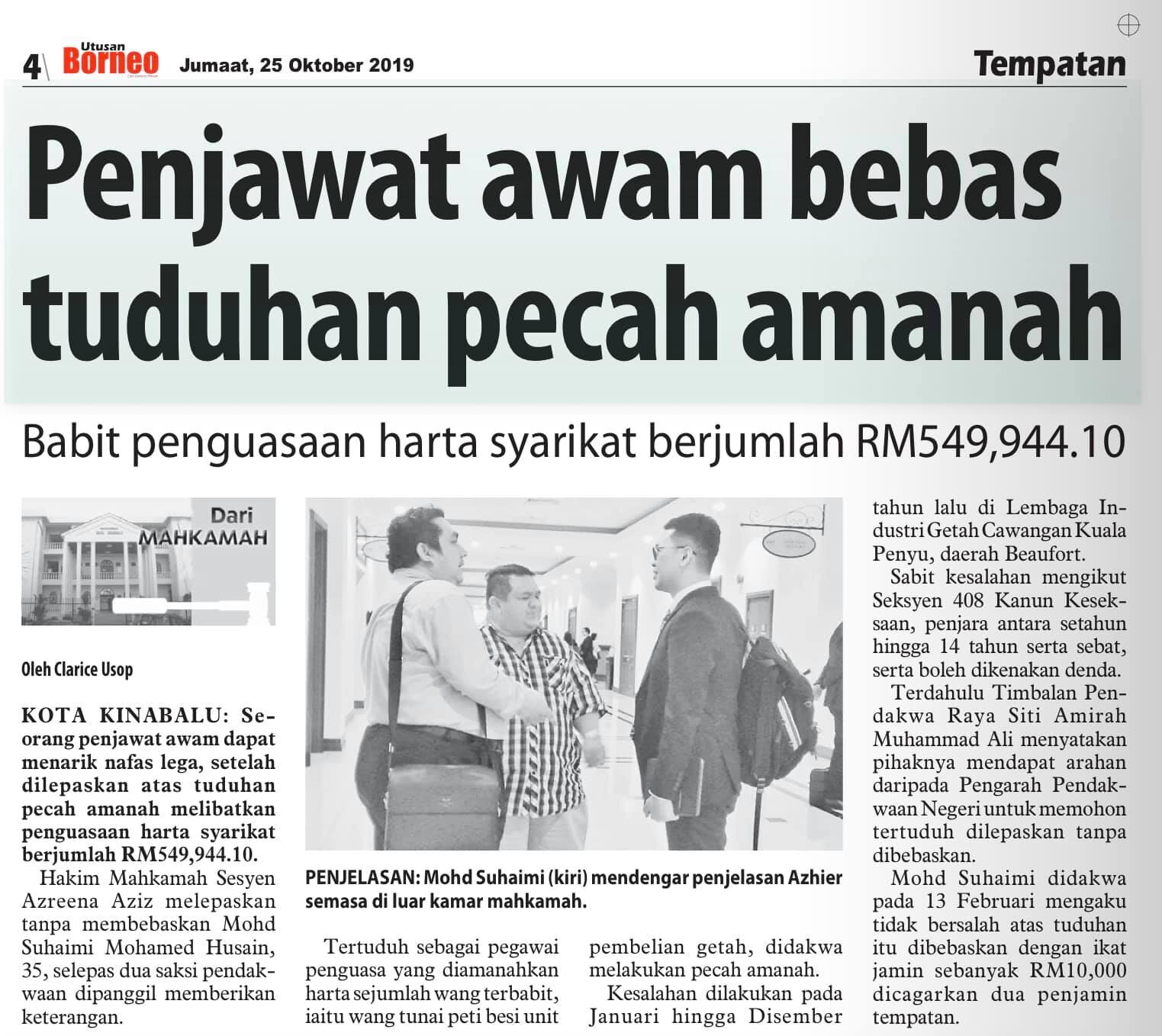
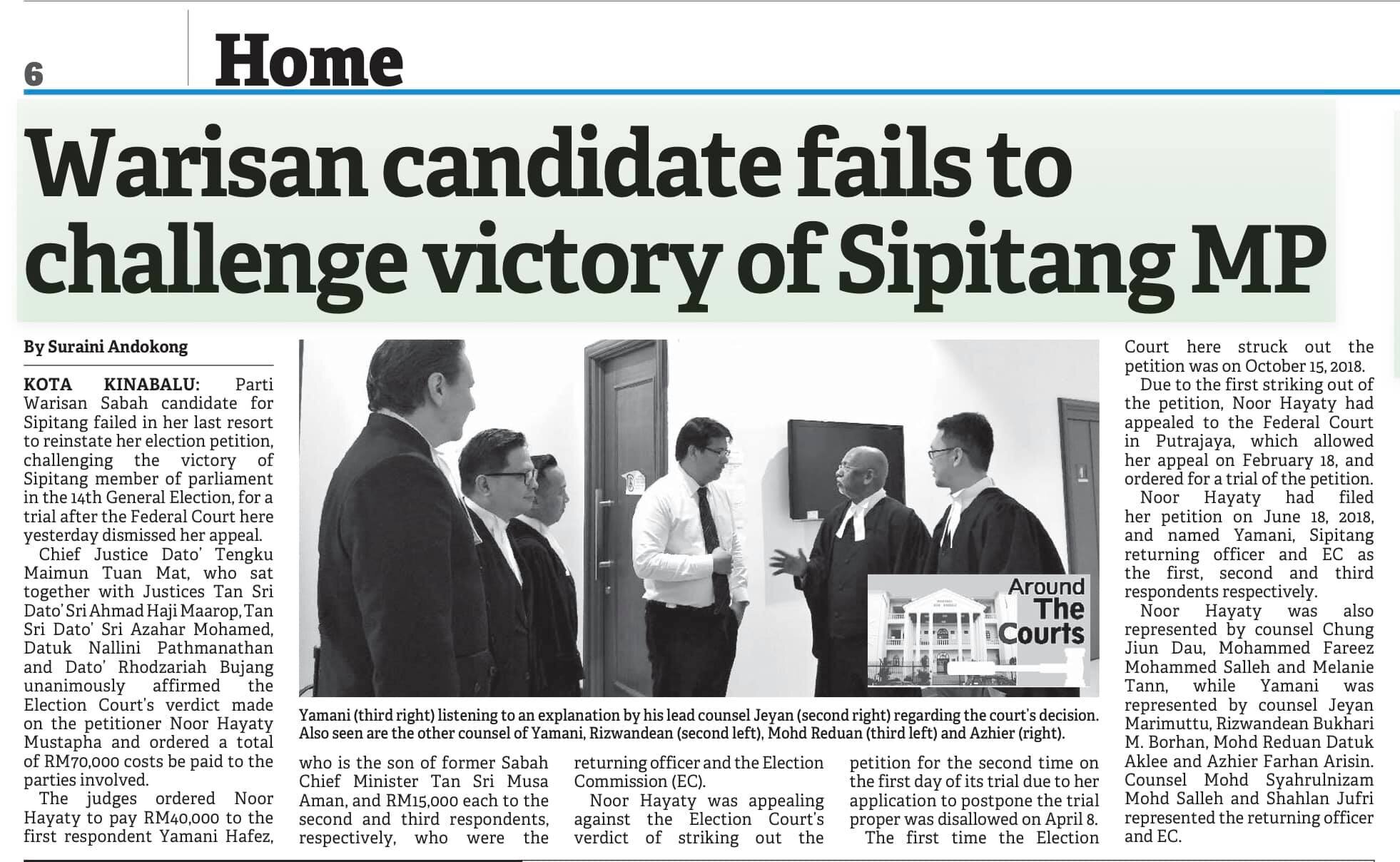
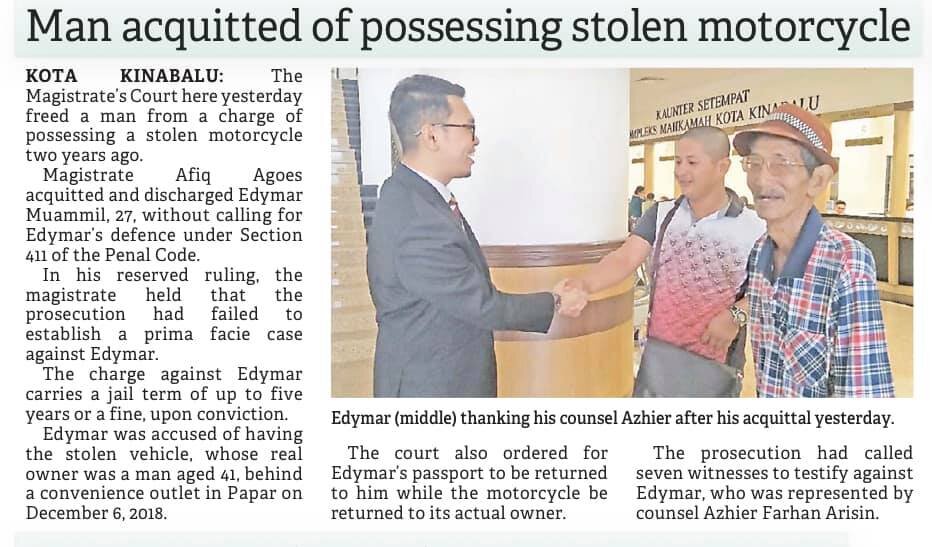


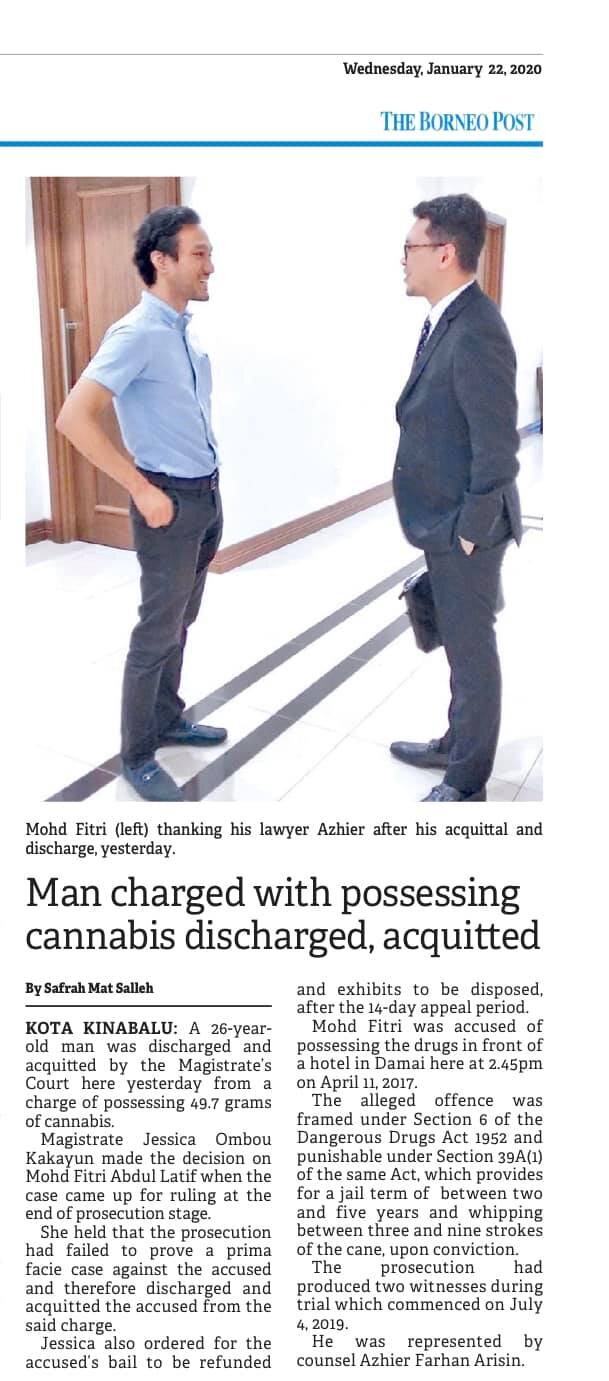
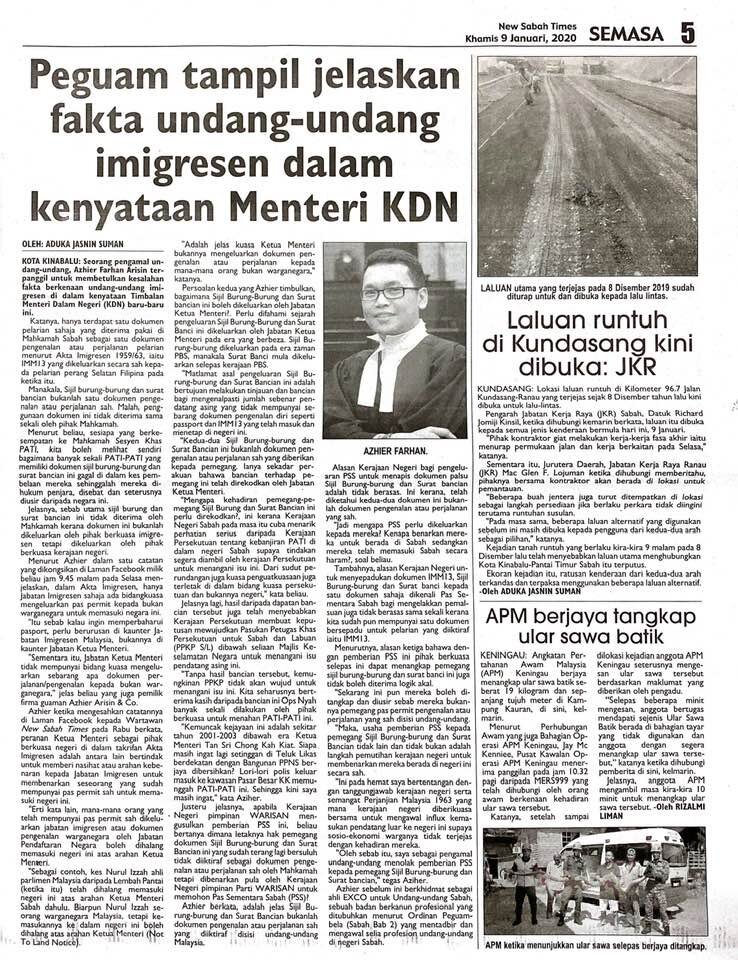



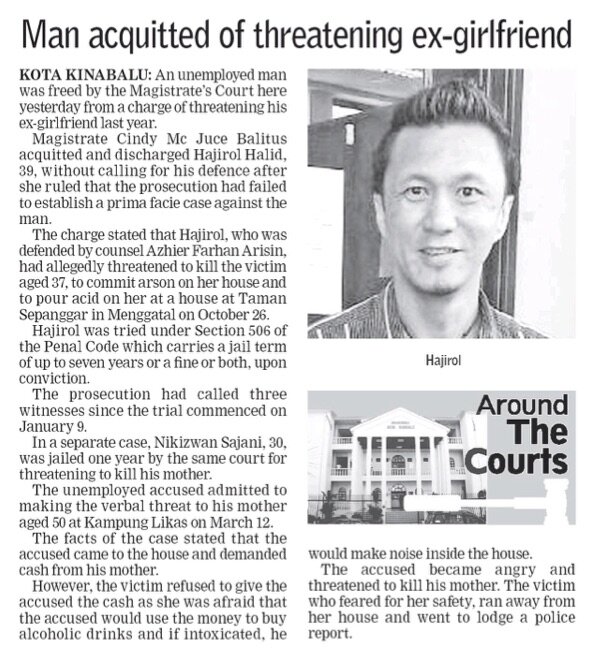
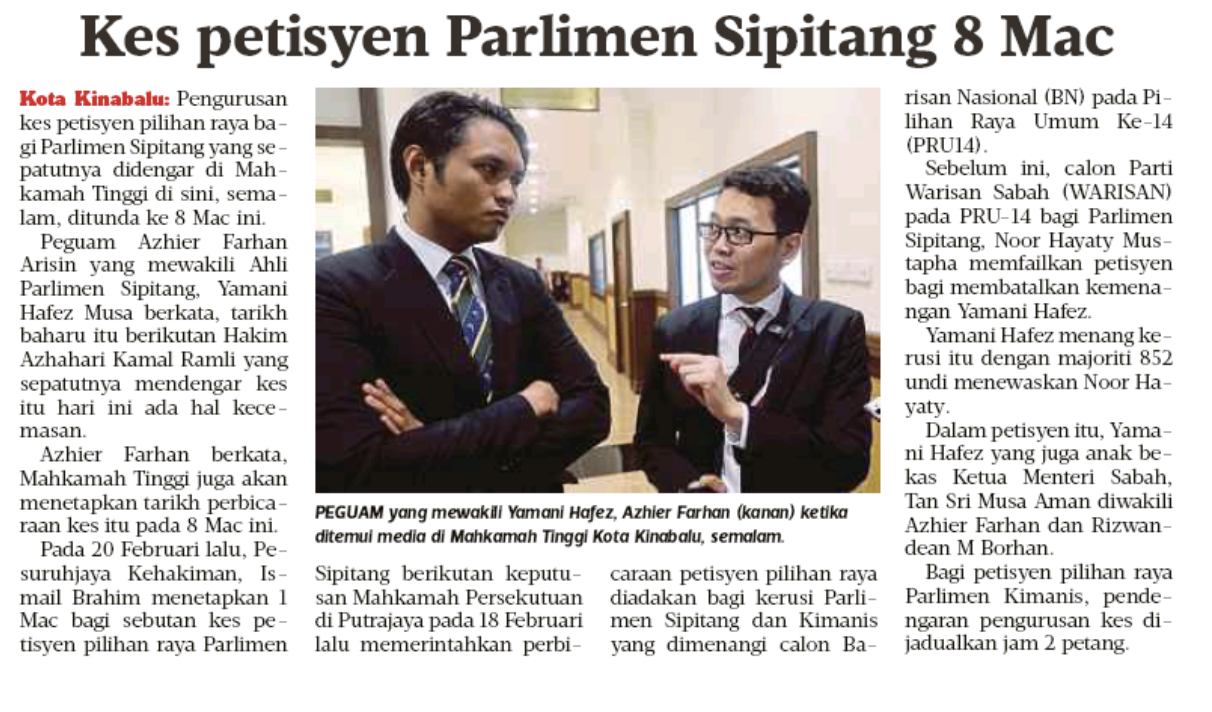


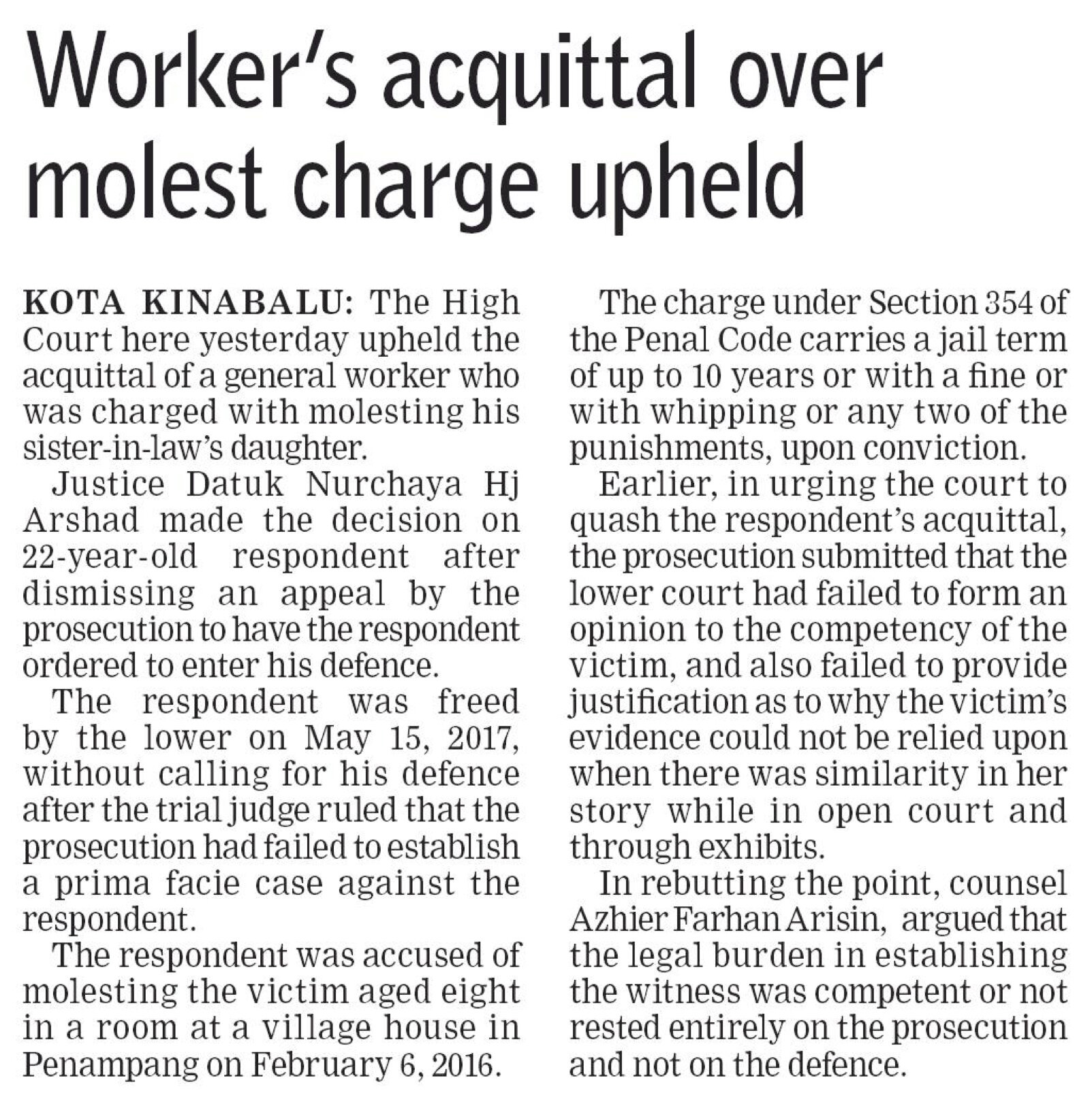



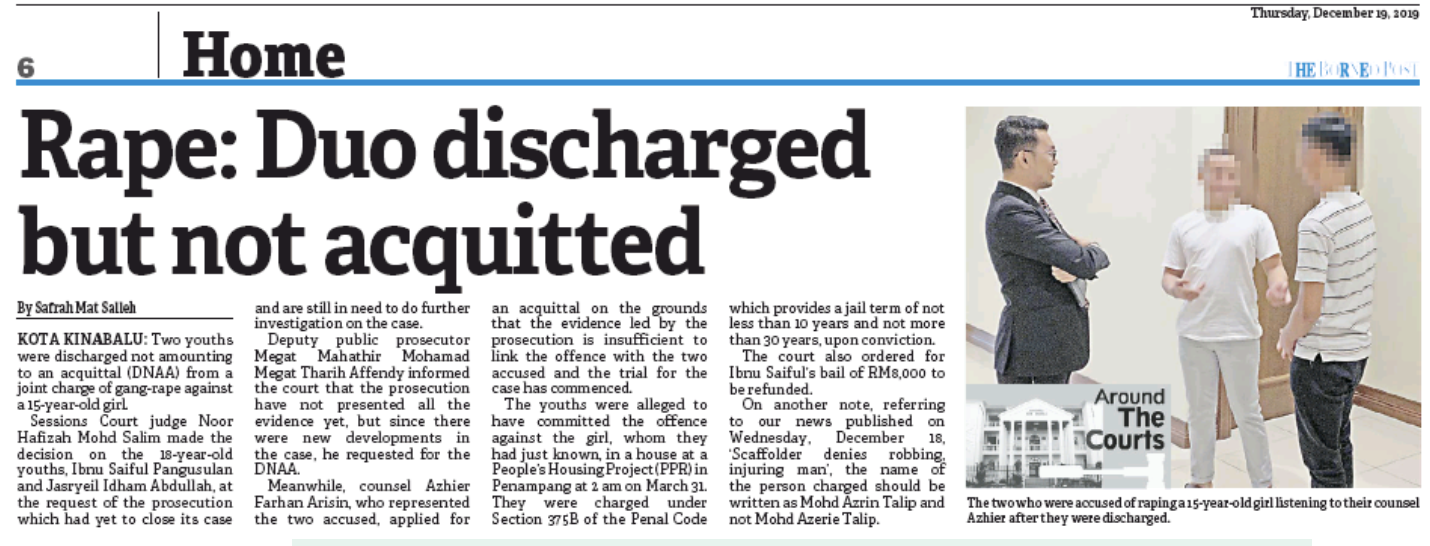
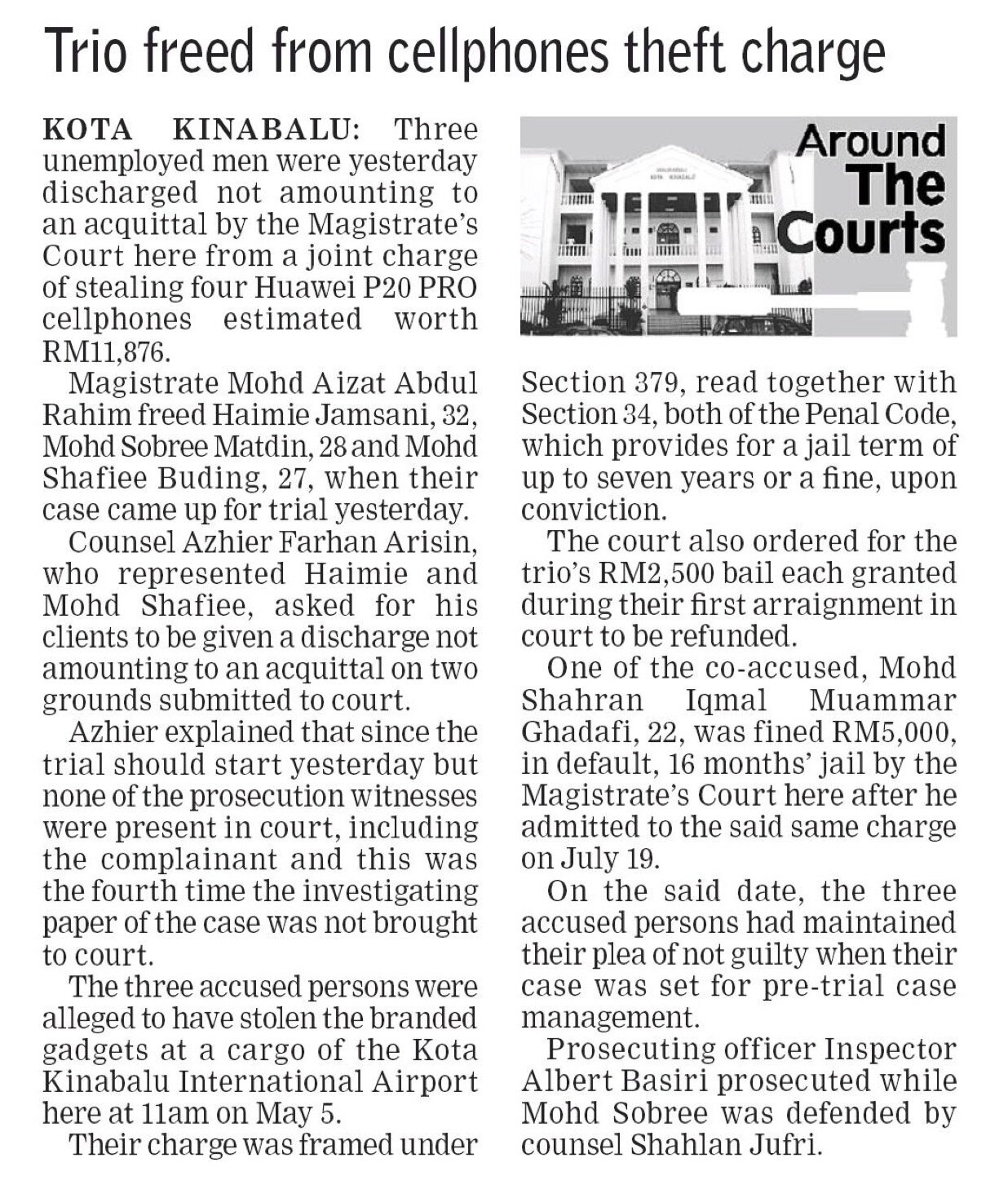
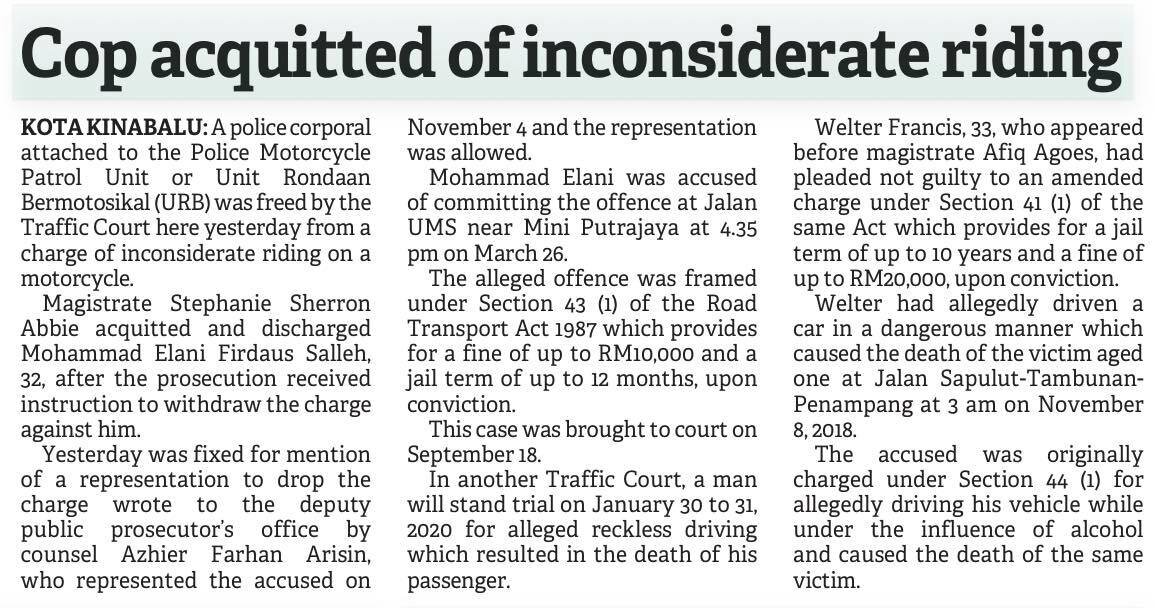


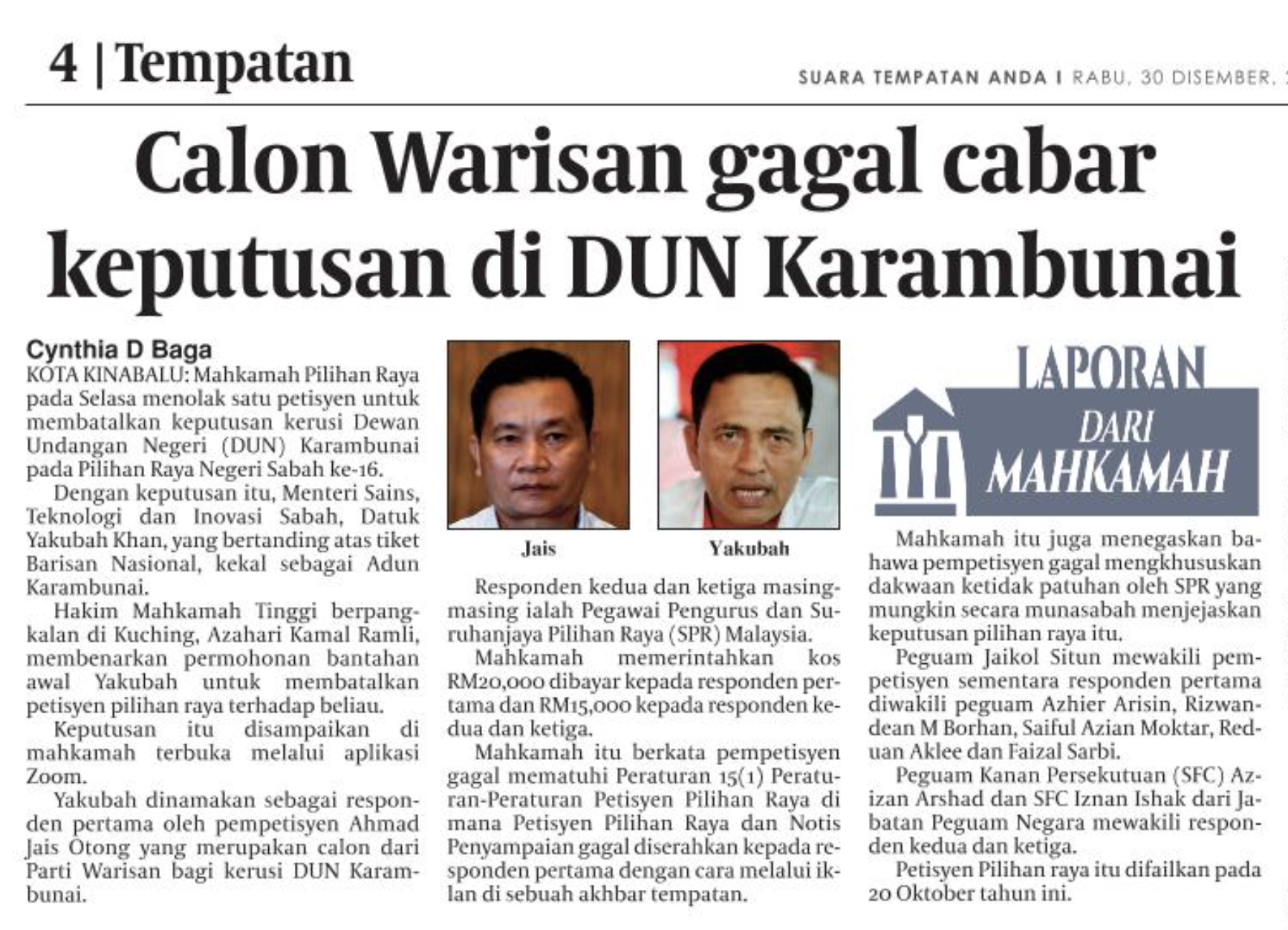
![IMG_0078[3027].JPG](https://images.squarespace-cdn.com/content/v1/5661db03e4b058ff46fac3ca/1613093612248-X4MFINZ5Q191BJMQKIXJ/IMG_0078%5B3027%5D.JPG)
